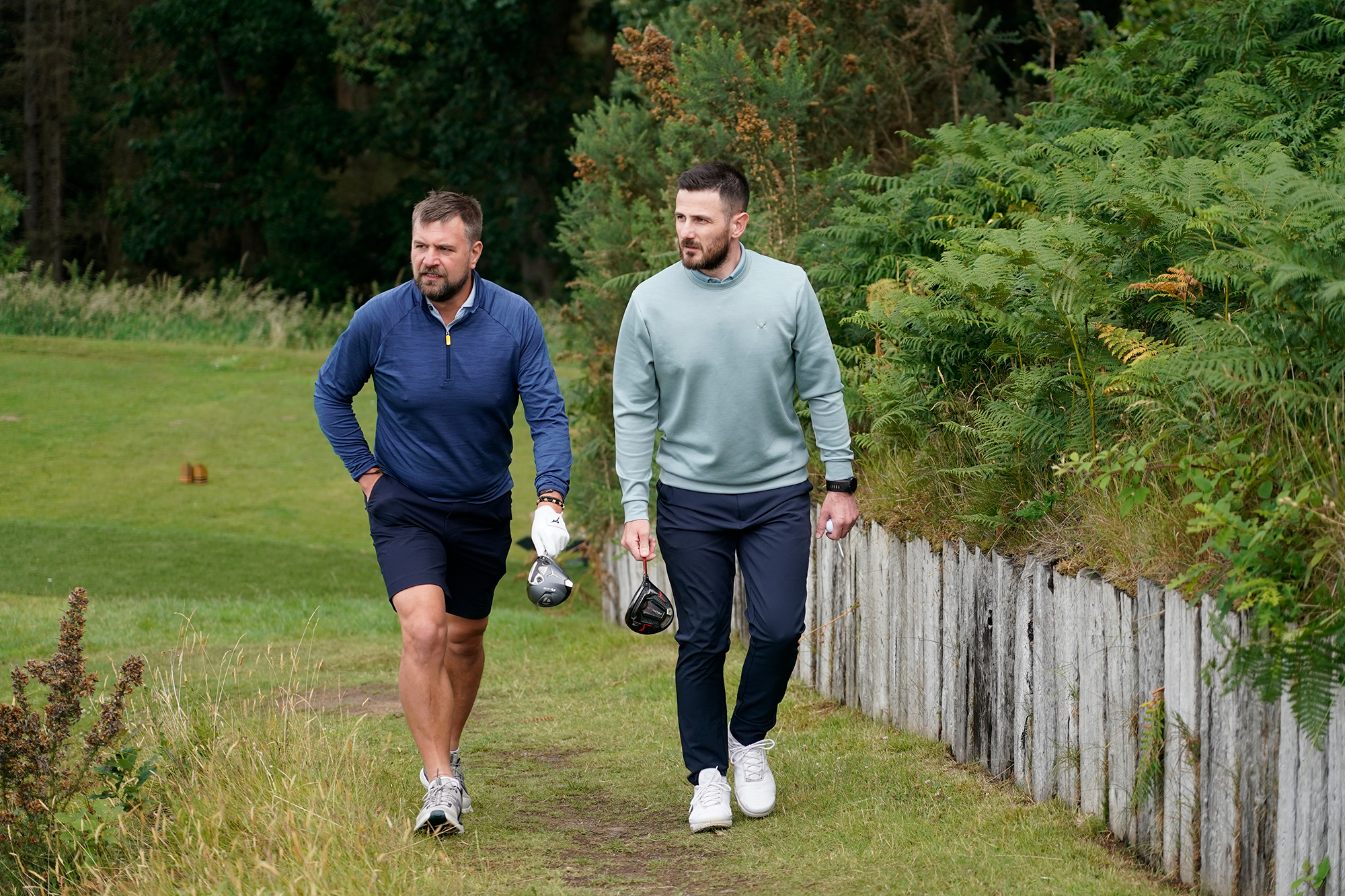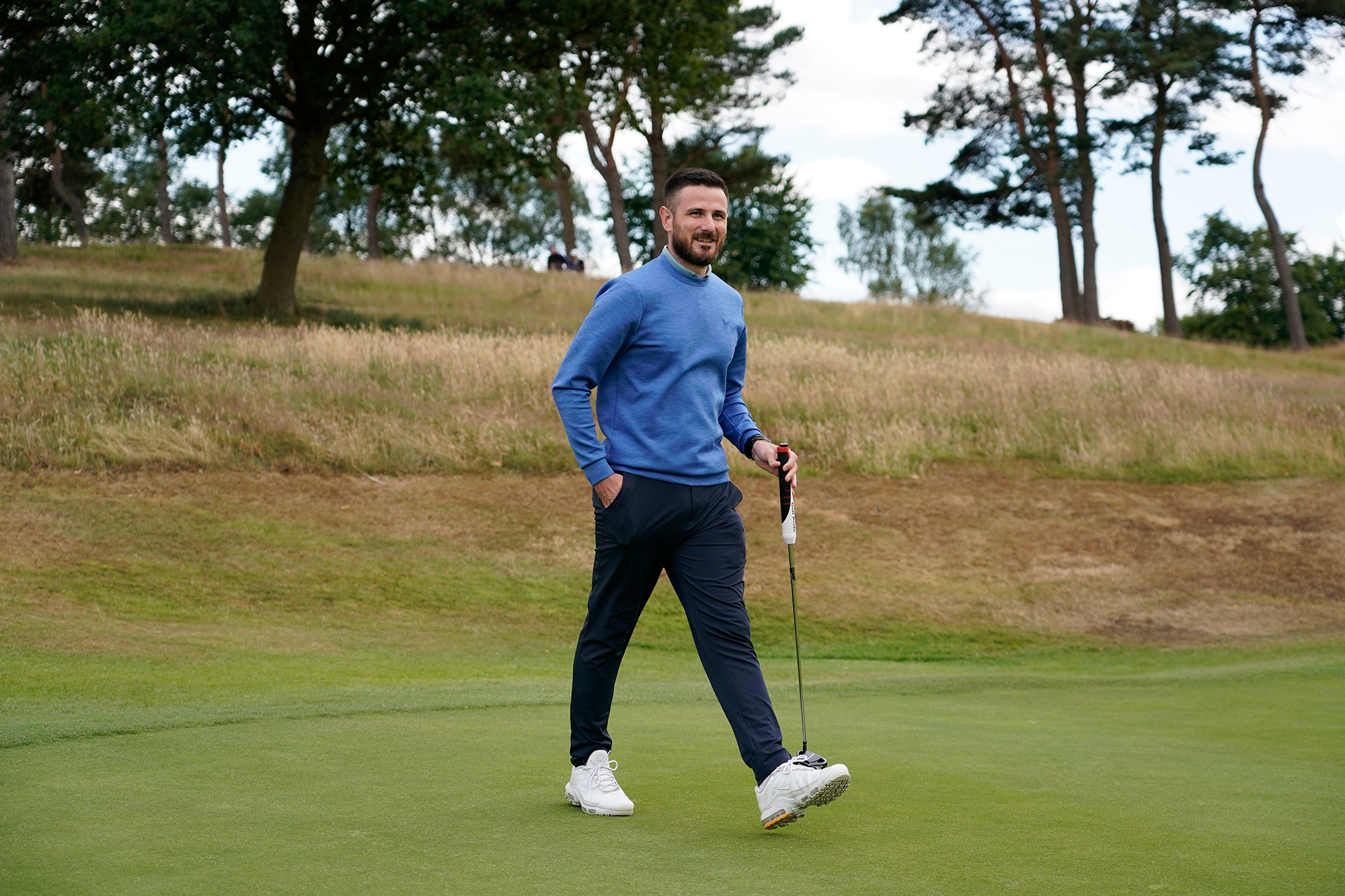How Healthy Is Golf Compared To Other Popular Sports?
How do the health benefits associated with golf compare to three of the most popular sports worldwide? I did a little research to find out...


Subscribe to the Golf Monthly newsletter to stay up to date with all the latest tour news, equipment news, reviews, head-to-heads and buyer’s guides from our team of experienced experts.
You are now subscribed
Your newsletter sign-up was successful
Want to add more newsletters?

Delivered daily
Daily Newsletter
Sign up for all the latest tour news, gear reviews, head-to-heads and buyer’s guides plus features, tips from our top 50 coaches and rules advice from our expert team.

Once a week
Kick Point
Sign up to our free Kick Point newsletter, filled with the latest gear reviews and expert advice as well as the best deals we spot each week.

Once a week
Women's Golf Edit
Sign up to our free newsletter, filled with news, features, tips and best buys surrounding the world of women’s golf. If you’re a female golfer, you won’t want to miss out!
Whether you are a golfer who wants to get fit, perhaps by using the 10 best golf exercises, or someone who uses a casual knock to build social connections... the game is undoubtedly good for us.
I choose to play golf in order to experience the (rare) thrill of making birdie and the anticipation of an impending handicap cut and the bliss of a long walk in the sunshine, but I also appreciate the various health benefits.
In this article, I compare the physical and psychological benefits of golf in relation to three of the most popular sports worldwide to see where it fits in the general health landscape...
WATCH: Retired professional footballer Gareth Bale discusses his love for golf in our Monthly Meets interview series
How Healthy Is Golf Compared To Other Popular Sports?
When planning my research, I decided to look into the most popular sports globally and found that football, tennis and basketball all ranked highly in terms of participation.
While it's difficult to definitively state the rank of these sports quantitatively, in terms of health, it is possible to discuss each of the known benefits and how the sports compare to each other.
As I outlined above, I believe the benefits of playing golf (and any other sport) can be broken down into physical and psychological factors - so let's start with the former.
Subscribe to the Golf Monthly newsletter to stay up to date with all the latest tour news, equipment news, reviews, head-to-heads and buyer’s guides from our team of experienced experts.
Physical Health Benefits
Golf is a sport that offers a moderate intensity of physical activity, with factors such as the course your are playing and whether you carry or push your bag around it.
When playing 18-holes it's very unlikely your heart rate will reach the intensity levels required in sports such as football, basketball, tennis and hockey.
This means you are unlikely to see a similar level of cardiovascular or muscular strength improvements, but you can lose weight playing golf.
Generally, golfers burn between 700 and 1500 calories in a round of golf - which is a great benefit of the game, especially if you are playing multiple times per week.

The average golfer does between 10,000 and 12,000 step per round
Participants playing football (500-800), basketball (500-750) or tennis (400-700) all burn more calories per hour than a golfer (200-400), but this is to be expected considering the raised intensity levels as referenced above.
Golf is a low-impact sport, however, which would more effectively protect joints and bones than the other sports listed above.
There is even some evidence that claims golfers live longer (than non-golfers), suggesting playing can increase your life expectancy by up to five years.
While the comparison between golf and the higher-intensity sports outlined suggests that team games and explosive individual sports offer increased benefits to your cardiovascular and muscular endurance, golf provides a great alternative to those who want to stay fit and healthy at a manageable pace.
Psychological Health Benefits

While it can be a bit of an emotional rollercoaster, playing golf makes lots of people happy thanks to its various psychological benefits
This is where golf really comes into it's own in this particular comparison, as there are so many reasons why golf is good for your mental health.
Getting out on the fairways is thought to reduce anxiety, help to manage stress, boost self-esteem, improve focus and strengthen social connections (among others).
Golf provides natural opportunities to problem solve, develop strategy skills and prompt thoughtful decision making - all of which can also help participants personally and professionally.
While sports like football, basketball and tennis also offer similar psychological benefits, I am not convinced they could top the holistic offer of 18-holes with friends - perhaps due to the intensity of team sports and the fast pace of a game like tennis.

Baz joined Golf Monthly in January 2024, and now leads the instruction section across all platforms - including print and digital. Working closely with Golf Monthly's Top 50 Coaches, he aims to curate and share useful tips on every aspect of the game - helping amateurs of all abilities to play better golf. Baz also contributes weekly to the features section, sharing his thoughts on the game we love and the topics that matter most. A member at Sand Moor Golf Club in Leeds, he looks forward to getting out on the course at least once a week in the pursuit of a respectable handicap.
Baz is currently playing:
Driver: Benross Delta XT
3-Wood: Benross Delta XT
Hybrid: TaylorMade Stealth 4 Hybrid
Irons: Benross Delta XT 5-PW
Wedges: TaylorMade RAC 60, Callaway Jaws MD5 54
Putter: TaylorMade Spider Tour
You must confirm your public display name before commenting
Please logout and then login again, you will then be prompted to enter your display name.